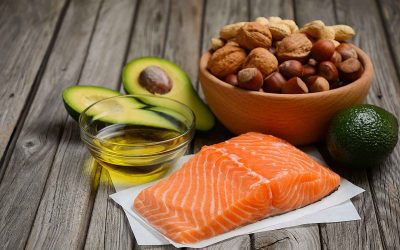My Take On Ketosis
Diets seem to be getting more and more complicated these days and the latest trend towards “Ketogenic Diets” seems to be, for the most part, yet another example of people overcomplicating their relationship with food. Do we really need to complicate things any further?
What is the Ketogenic Diet?
A Ketogenic Diet is one that limits carbohydrates to a point that the BODY relies on fatty acid oxidation and begins running on what is called a “ketone metabolism”. This is really a complicated way of saying – the body switches from burning sugar and glucose for fuel to burning dietary and stored body fat.
Sounds impressive, right? Of course it does and I can understand the appeal of the promises that the Ketogenic Diet offers; weight loss, reduction in inflammation, imcreased clarity of mind, etc. However my issue lies in the extreme nature of the diet and the limitations placed on certain foods that would otherwise be deemed healthy.
How do you initiate a Ketogenic Metabolism?
I have and do recommend The Ketogenic Diet when necessary and have placed thousands of people on this style eating program for shorts bursts of time. Essentially, The Ketogenic Diet limits your caloric intake in the following ratios: 60% coming from Fat, 5-10% from Carbohydrates and 30-35% protein, and cautions that too much protein may kick you out of ketosis. Understand too that my Palm Method brings you close to these ratios without puting you into ketosis
What is a Ketogenic Plate?
Typical Ketogenic foods meals include; eggs, bacon, butter, full-fat creams, fatty cuts of meat, coconut oil, low-carbohydrate nuts, and a limited number of low-carb vegetables; typically dark leafy greens.
While the idea of eating “BACON!” at every meal may be appealing to some, a diet that requires counting the consumption of vegetables as having a negative impact is one that as a health care practitioner, raises alarms bells for me, and in my humble opinion should be reserved for periods and times that demand this level of dietary restriction for example; Epilepsy, PCOS, Insulin Resitance and Type 2 Diabtetes and rapid fat loss.
At a time when so many Australians fail to reach their daily consumption of fruits and vegetables by almost 50%, I wonder if whether a Ketogenic diet may be an excuse to continue down this path…
I do have other concerns about the long term use of Ketosis...
My Concerns about Long-Term Ketosis
Weight Loss? Of course!
Studies that report improvements in body composition when using the Ketogenic diet refer to a loss in fat mass. This can be the case in any diet that limits caloric intake and a frequency of eating however, needing to be in ketosis for long periods of time is not essential to losing fat with long term success and results. Having helped thousands upon thousands of people lose weight without long term ketosis, across all capabilities of exercise and fitness, cardio vascular health and more, a state of metabolism that allows for marginal ketosis on some days and not always others, has people feeling amazing and losing weight at the same time whilst still eating fruit and vegetables.
Negative Effects On Muscle Mass & High Intensity Exercise
While 'improved body composition’ may be a benefit of a Ketogenic diet, there is little and often conflicting evidence to suggest that Ketogenic diets positively improve muscle mass or high-intensity exercise performance. In fact, many studies show decreased capacity to perform high-intensity work. This is largely due to reduced intramuscular glycogen (glycogen stores in the muscles), and reduced capacity to access this high-energy fuel during high-intensity training. However – I am aware through my great friend Steph Lowe from the Real Food Reel – that athletes can perform at incredible levels when they are in a state of fat burning instead of carb burning… this however, isnt achieved through the restricition of veggies and plants.
What about the Veggies!?
As I mentioned earlier a diet that is so restrictive on the diversity and abundance of plant foods is one that will always raise my eyebrow. I have always and still endorse the benefits for longevity, health and vitality with a plant-based wholefoods diet, balanced in its nutrient ratios and also in its psychology – that allows people a bit of lee-way to socialize, share and connect. Veggies are indeed the key to long term health and longevity.
Unless you are suffering from a severe neurological disease and have sought the advise of a health care practitioner who thinks this approach may help you, I suggest taking a subtler approach and moving closer towards a Mediterranean style of eating; you will likely consume higher amounts of dietary fat as a result, consume less and hopefully no processed carbohydrates and source high quality proteins that can only do you good.
So let’s keep it simple and in the words of the wise Michael Pollan “Eat food. Not too much. Mostly Plants.”

Related Podcast Episodes
- 5 June, 17 - 100NO 218: Is The Ketogenic Diet Safe?
Recent Articles
Why I Ripped up my Manuscript
As many of you may not have been aware I am writing book, or I was…until recently when I ripped up my manuscript. While this may seem like an impulsive and irrational move, I assure you this decision came after a great deal of reflection and contemplation. You...
School’s of Paleo Thought
Paleo, Primal, Ancestral Eating, AIP, Vegan, what the -? There is a multitude of diets and ways of eating out there but the ‘it’ diet of the moment is definitely Paleo. While the media has mutilated the Paleo framework to appear dangerous, experts in the field of...
Why Calories Don’t Matter
For years we have been told to avoid fat, especially saturated fat due to its high caloric density and that these calories will work against us if we are trying to loose weight. But what if I told you that this simply wasn’t true?





0 Comments